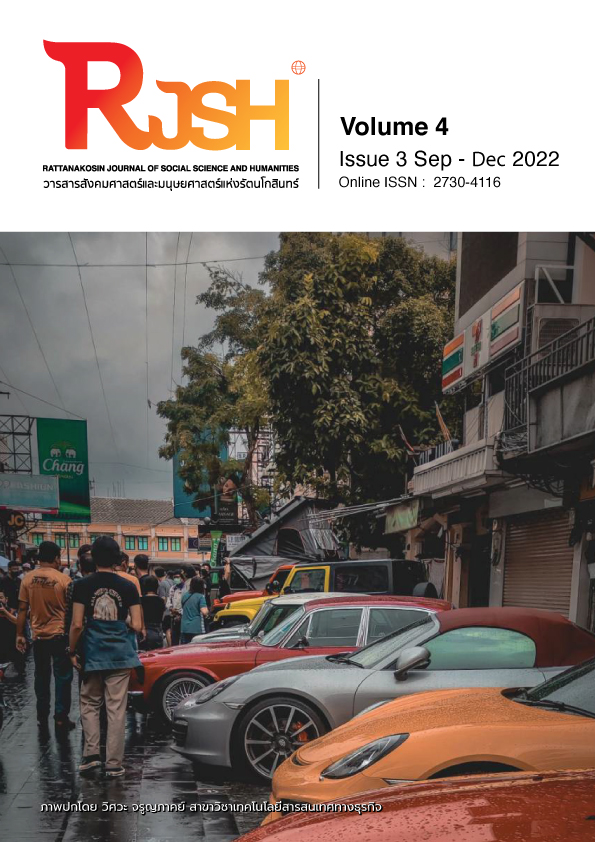Motivation-Hygiene Factors and Working Problems of Accountants in Accounting Firms, Ban Pong, Ratchaburi
Main Article Content
Abstract
This study aims to examine motivation factors, hygiene factors, and working problems of accountants in accounting firms. A questionnaire was used as a tool to gather data and the sample was 64 accountants from 6 accounting firms in Ban Pong Ratchaburi. Percentage, mean, standard deviation, T-test, and F-test were used to analyze data. The results demonstrate that most of the accountants are 26-30 years old women finishing an undergraduate degree with 4-6 years of experience, and having an income of around 15,001-20,000 baht. The results of the study on motivating factors and hygiene factors in working show that the overall level of both factors is at a high level. The motivating factors for success at work are at the highest level. The hygiene factors at the highest level consist of 2 aspects, namely the company's management policy and compensation and benefits. The results of the research hypothesis testing reveal that the personal factors -- age, education level, and work experience -- have a statistically significant influence on motivation and hygiene factors at the 0.05 level, and they have no statistically significant influence on working problems.
Article Details
The content within the published articles, including images and tables, is copyrighted by Rajamangala University of Technology Rattanakosin. Any use of the article's content, text, ideas, images, or tables for commercial purposes in various formats requires permission from the journal's editorial board.
Rajamangala University of Technology Rattanakosin permits the use and dissemination of article files under the condition that proper attribution to the journal is provided and the content is not used for commercial purposes.
The opinions and views expressed in the articles are solely those of the respective authors and are not associated with Rajamangala University of Technology Rattanakosin or other faculty members in the university. The authors bear full responsibility for the content of their articles, including any errors, and are responsible for the content and editorial review. The editorial board is not responsible for the content or views expressed in the articles.
References
ธาดา รัชกิจ. (2562). การบริหารจัดการทรัพยากรมนุษย์ (Human Resource Management : HRM) หัวใจสำคัญของการขังเคลื่อนองค์กรยุคปัจจุบัน. สืบค้นเมื่อ 23 ก.พ. 2565 จาก http://www.th.hrnote.asia.
ประคอง กรรณสูต. (2538). สถิติเพื่อการวิจัยทางพฤติกรรมศาสตร์. พิมพ์ครั้งที่ 2. กรุงเทพฯ: โรงพิมพ์แห่งจุฬาลงกรณ์มหาวิทยาลัย.
ปรียาพร วงศ์อนุตรโรจน์. (2553). การบริหารงานวิชาการ. กรุงเทพฯ : ศูนย์สื่อเสริมกรุงเทพฯ.
วัชระ แย้มชู. (2563). ปัจจัยที่ส่งผลต่อแรงจูงใจในการปฏิบัติงานของพนักงานธนาคารเพื่อการเกษตรและสหกรณ์การเกษตร สำนักงานใหญ่. วิทยานิพนธ์บริหารธุรกิจมหาบัณฑิต, มหาวิทยาลัยเกริก.
Bavister, S. & Vickers, A. (2017). Motivate Yourself and Other: Bullet Guide. Thinkbeyond Book, 16-22.
Griffeth, R.W., Hom, P.W., & Gaertner, S. (2000). A Meta-Analysis of Antecedents and Correlates of Employee Turnover: Update, Moderator Tests, and Research Implications for the Next Millennium. Journal of Management, 26(3), 463.
Herzberg, F., Mausner, B. & Snyderman, B.B. (1959). The Motivation to work. New York: John Wiley and Sons.
Maslow, A.H. (1970). Motivation and Personality. New York: Harper & Row.


